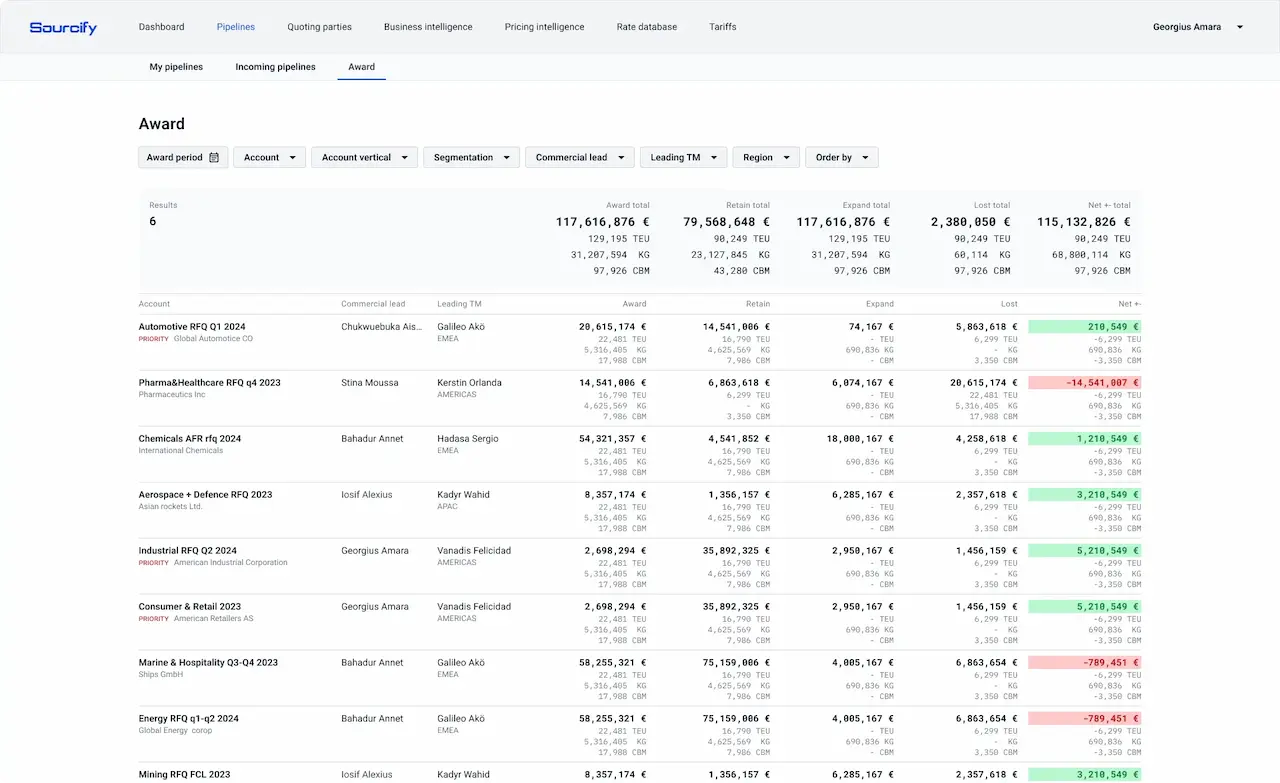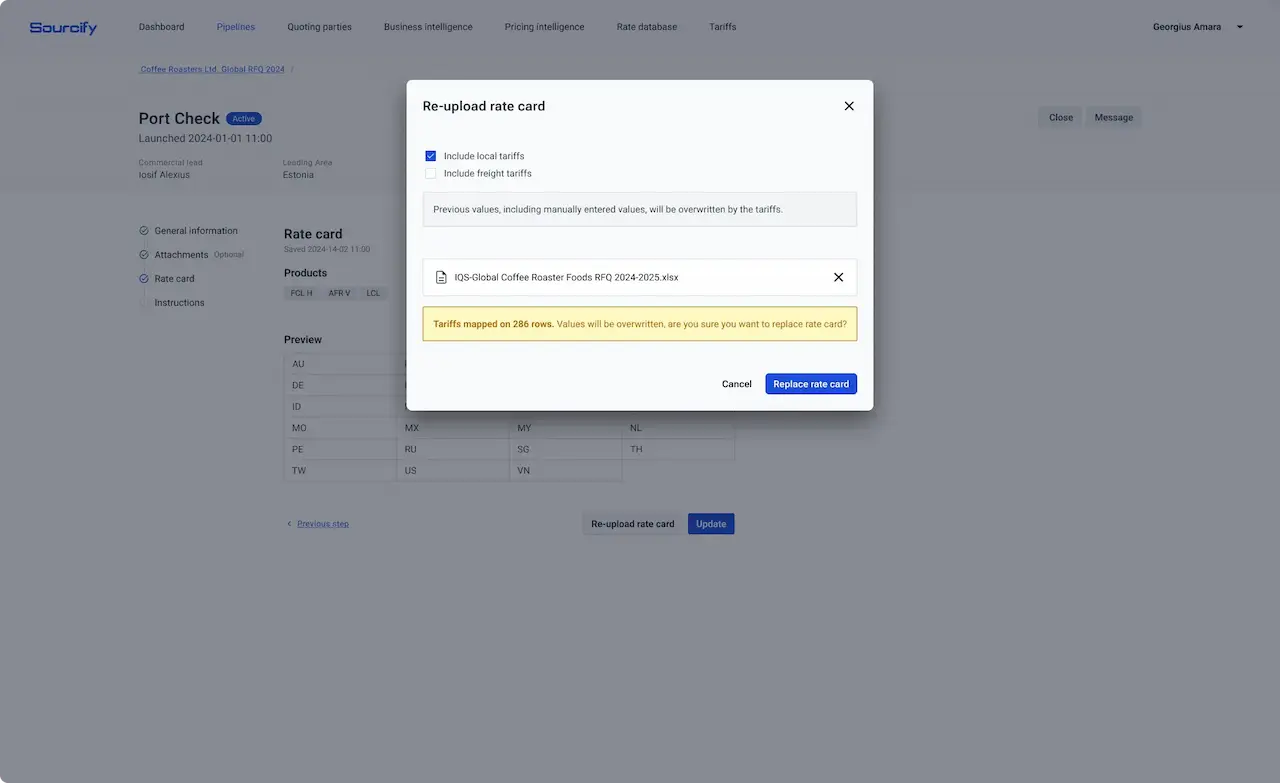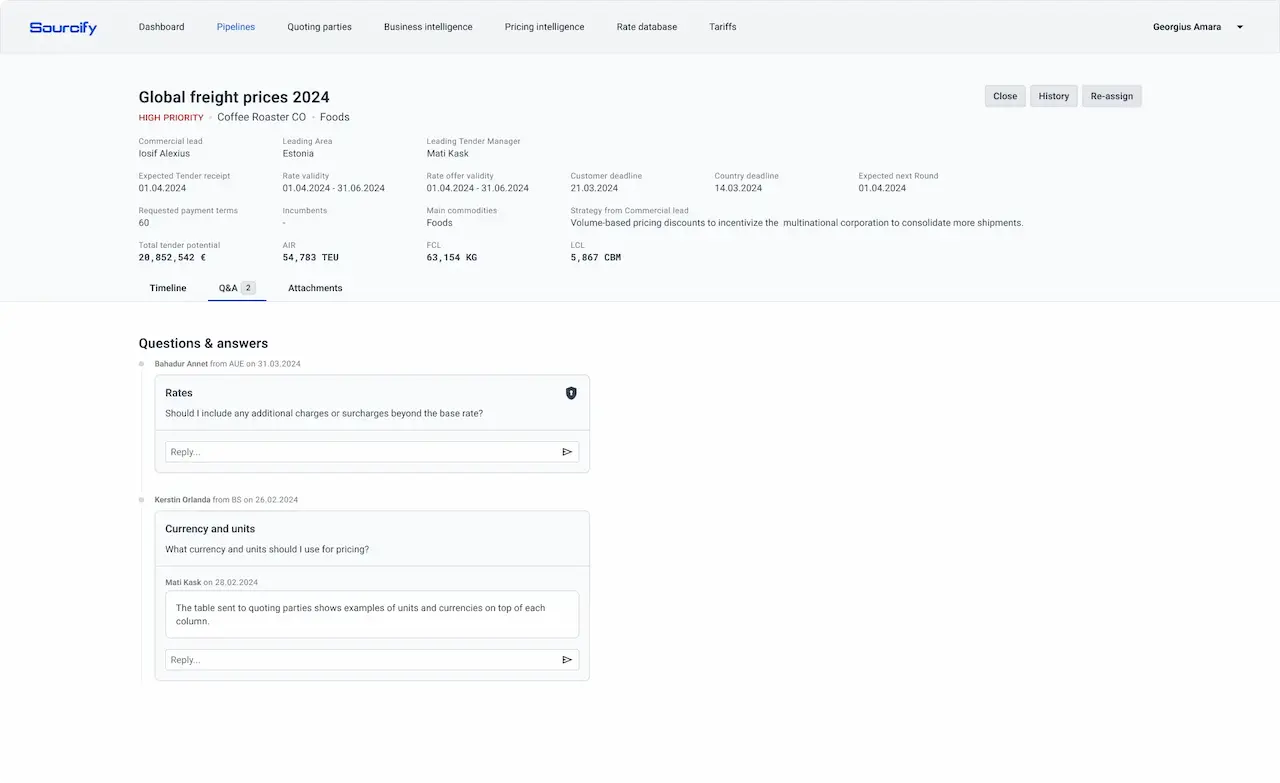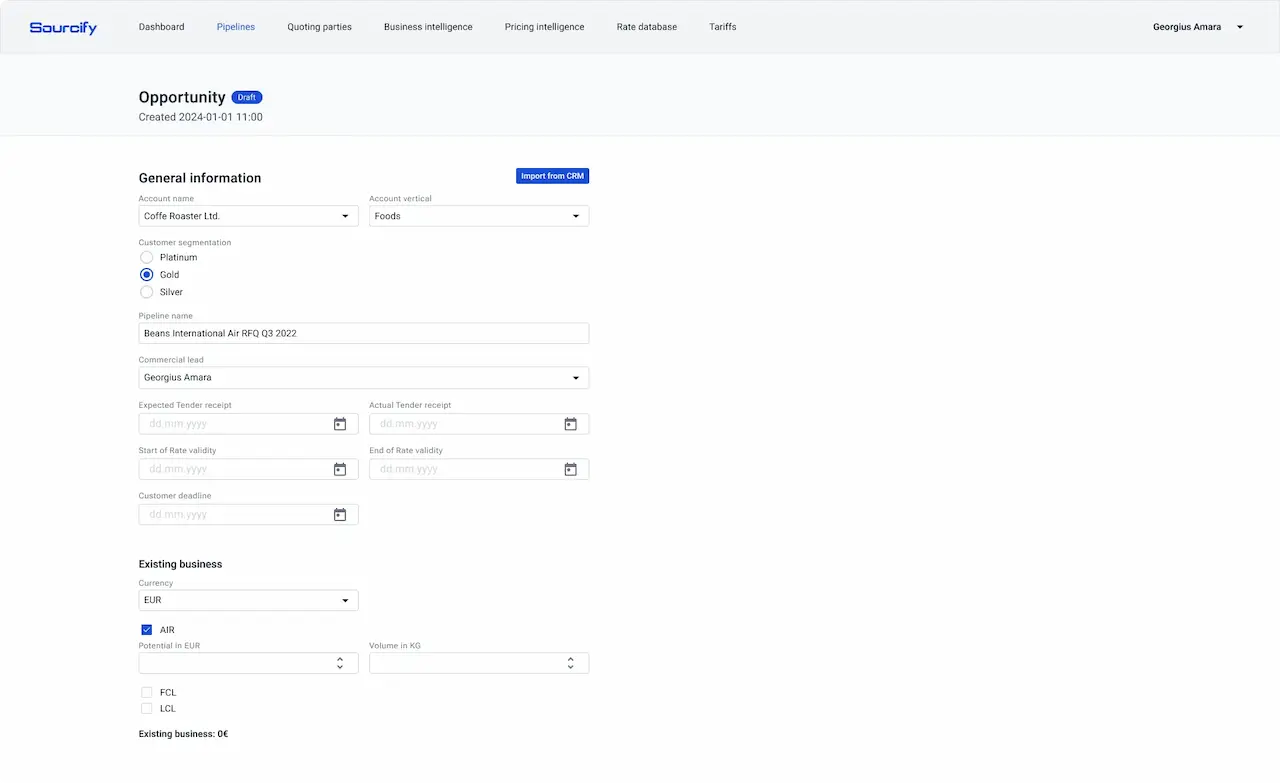Data driven RFQ management software
for freight forwarders
Sourcify's software enables companies to generate additional revenue and enhance the quality of responses to freight procurement RFQs by automating the tender management workflow and providing valuable data to organizations.
120+ countries
have published RFQs
2900+ users
have submitted prices
5500+ RFQs
handled in Sourcify platform
4-6 weeks
industry leading roll-out time
Main benefits of Sourcify platform
A transparent and consistent internal pricing process will ensure standardization and visibility across the organization. This will eliminate the possibility of unexpected costs, incorrect quotes, or missed deadlines.
We digitize and standardize transportation procurement pricing processes, reducing the workload of tender managers by at least 50%.
We collect and archive all your freight procurement pricing data, providing the intelligence needed for smarter business decisions.
The combination of industry-specific algorithms and artificial intelligence will significantly enhance the data quality of your proposal.
Security audits are done regularly. We follow OWASP Application Security Verification Standard. Each customer's data is isolated and encrypted at rest and in transit.
The Sourcify platform is unquestionably the simplest platform in the forwarding industry in terms of implementation and user experience.
The platform value will increase over time with a continuous improvement mindset and 5000+ hours of annual platform development.
Trusted by industry leaders








Key features of Sourcify
Do you know how many RFQs your organization managed last year? How many TEUs, KGs or CBMs did you win? Do you know the rate levels needed to win business on the Far East Westbound trade? Our customer can easily access these insights thanks to Sourcify's features.




Standard operational process
Generate country-specific rate cards. Implement data validation and smart notifications for all RFQ steps. Complete the process with reviewing and automated quality tools. Improve data quality at every RFQ step.
Opportunity management
- Register transportation procurement RFQs directly in Sourcify or via CRM integration.
- Assign and manage the leading area and freight broker.
Automate RFQ prefill and distribution
- Pre-fill the rate card using saved port and freight rates from past RFQs.
- Automated distribution of the rate card to the involved quoting parties.
RFQ process and smart notifications
- Manage rate card distribution and bidding rounds.
- Validate country submissions.
- Automated rate consolidation into a single rate card.
- Notifications of rate card update and port change.
Regional pricing review process
- The addition of an extra layer of reviewing by regional teams before submitting to the customer will further improve visibility, data quality, and decision making.
AI (ML) driven consistency checks
- Sourcify's AI (ML) quality engine identifies potential human errors based on past performance, taking into account pricing levels that lead to award. The more freight procurement bids you manage, the more accurate are the engine's recommendations.
Data driven dashboards
- Use a variety of pricing, performance, and intelligence dashboards to measure, benchmark, and challenge your teams.
- Use the RFQ database to make smarter business decisions.
Testimonials
Read what our users have to say about us.
“Sourcify is an easy tool to implement through the organization, with very little training needs and fast to deploy to the organization. It helped to increase our productivity and also to improve the data quality. The tool is very flexible to set up pricing rules and processes and it has helped to increase the tender visibility within our organization. Since we started working with Sourcify, enhancements have been implemented and I will highlight the flexibility of the Sourcify team to work on changes and improve the platform with a continuous improvement mentality.”

Arcadio Martinez, Director, Global Tender Management
DSV Air & Sea
"Sourcify has helped us to streamline the consolidation process within the quotation phase and also to enhance our overview on quoted business for a better analysis. "

Johannes Harms, Global Tender Manager
Röhlig Logistics GmbH & Co. KG
“Sourcify has significantly streamlined the pricing of our global tenders and has remained consistently reliable, responsive, and efficient. The intuitive, yet simple, interface makes navigating the features easy to learn. The Sourcify team is always looking for ways to improve the system to fit our business needs and it has become an indispensable tool for our team.”

Ian Gust, Global Tender Pricing Specialist
Crane Worldwide Logistics
“One of the most notable achievements stemming from the implementation of your tender platform is the significant time savings in data consolidation. By automating this critical aspect of the procurement workflow, we have been able to allocate resources more efficiently, enabling our team to focus on strategic initiatives and value-added tasks.
[...] with a centralized database for all online RFQs, we now have an overarching view of RFQs across various regions, providing us with valuable insights and enabling better-informed decision-making.”

Jia Jia Ren, VP, Global Tender Management
Toll Global Forwarding
“Over the several months, our team has been working through the implementation and global roll out of the Sourcify system. The intuitive nature of the system coupled with the unmatched customer service provided by the Sourcify team has made this process an incredibly positive experience. We are greatly impressed with the functionality and versatility of the Sourcify system.”

Brendan Donahue, Tender Management Americas
BDP International, Inc.
“The journey to digitize tender management in DSV started in June 2021 by implementing Sourcify. As a first step, it was rolled out in Global Tender Management and now the entire DSV network is using Sourcify for all tenders. All this was possible due to the easy to use and customize features Sourcify offers. By having Sourcify, we have massively increased the productivity while having end to end visibility of all tenders running in DSV. ”

Irshad Muhammad, Head of EMEA Global Tender Management
DSV Air & Sea Germany GmbH
Book a demo with our experts
Tell us what you’d like to focus on (e.g. technical setup, specific features, process steps or business value). The more context you share, the better we can tailor your demo — e.g. number of RFQs, people involved, or your specific goals. Our experts have developed this product since day one and have previous experience as a tender manager. With their in-depth knowledge of the platform and industry, they are perfectly positioned to answer all your questions that may arise.We will respond within 3 working days.